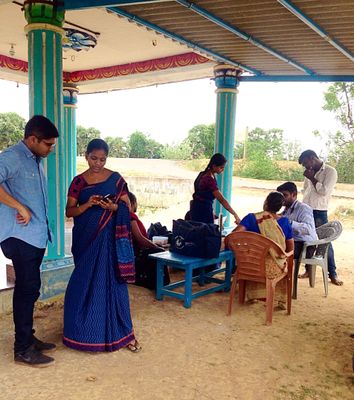On the surface, health systems in South Texas and the Tamil Nadu state in southern India may not seem to have much in common. The two systems have seemingly opposite problems: Rural India has an acute shortage of physicians, little government funding for health care and very few people covered under insurance. In contrast, McAllen, Texas came under scrutiny in 2009 when medical writer Atul Gawande illustrated how the region’s top-notch doctors and hospitals led the U.S. in health care spending but that it’s largely insured population wasn’t any healthier than other regions.
What these systems do have in common is that they are addressing the global rise of diabetes with innovative ideas and solutions that are disrupting the way we traditionally think about caring for chronic illness.
Both were featured by the Brookings Institution in a series of case studies highlighting innovations in diabetes care. Brookings also recently hosted a day-long conference: “Disruptive Innovations in Diabetes Care from Around the World” which included IPIHD Director Krishna Udayakumar and IPIHD innovator Zeena Johar from SughaVazhvu Healthcare in India, as well as panelists from the U.S., Spain, and Mexico. You can read all the case studies and watch the recorded event here:http://www.brookings.edu/events/2015/04/07-innovations-in-global-diabetes-care
The event looked at innovations in diabetes care from around the world and also accountable care innovations in the U.S. Udayakumar said that in the U.S., we are not deriving as much value from our healthcare systems as we could. Highlighting the potential for US health systems to learn from promising new models emerging outside of the US, he said: “There is huge value in looking where the bright spots are.”
“We are really now one community,” said Agnes Soucat, the Director of Human Development at the African Development Bank. “It’s increasingly difficult to separate the issues of low income, middle income and OECD countries. All countries are going through a demographic and epidemiological transition.” However, while diabetes is a problem everywhere, it is poorer countries that must also contend with issues of poverty, lack of infrastructure and infectious disease burdens. Systems in those places that were designed around maternal/ child health needs and communicable disease now must evolve to respond to these new challenges.
Panelists discussed the difficult choices systems must make about where and how to invest resources in ways that address both treatment and prevention in diabetes care and management. “We can’t ignore the 350 million people around the world with diabetes and say we’re going to focus just on prevention. But if we focus just on that and not think about the population health measures, we’re going to get further and further behind,” said Udayakumar.
He added that the most important takeaway for system leaders in all countries is “empowering patients and consumers to be more aware, to be more health literate, and to be more accountable for decision making, behavior modification and being co-producers of health rather than passive recipients of health care systems over time. That is eventually what is going to cut across prevention and treatment.”
IPIHD and the Brookings Institution have been collaborating on a number of diabetes related projects through the IPIHD Diabetes Working Group, which is comprised of a subset of the IPIHD community including supporters and innovators. The Working Group met in Mexico City in November 2014 and holds regular phone calls to discuss challenges and ideas in diabetes care innovation.
For more information about the group and how you can be involved, contact Krishna Udayakumar at ku@duke.edu

